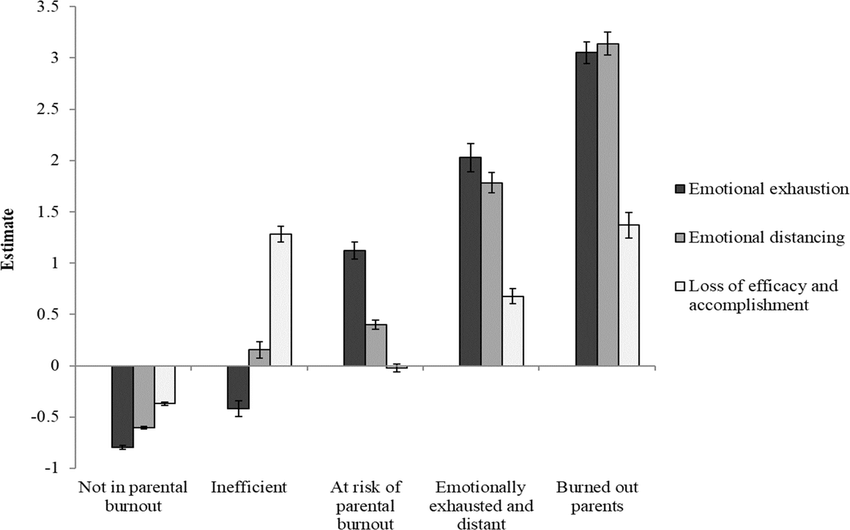COVID-19 is still causing parental burnout - do you know the symptoms?

“I feel like I’m on a ride and I can’t get off.” Image: UNSPLASH/christopher lemercier
Listen to the article
- Research by a UK children’s charity has found more than 80% of parents are struggling with at least one symptom of burnout due to the COVID-19 pandemic.
- More than half of mothers have experienced anxiety.
- The pandemic’s impact on children’s education and mental health are two key concerns.
- Experts explain parental burnout and what parents can do to ease it.
“I feel like I’m on a ride and I can’t get off.”
“I want to just leave this house and never come back.”
“I feel like I’m drowning.”
These words are all taken from real conversations a UK helpline has had with parents during the pandemic - and they shine a light on parental burnout that many are still experiencing across the globe today.
At the start of the pandemic, in March 2020, around 1.4 billion children were out of school. Schools were still closed for 77 million children in September 2021, 18 months later, according to data from UNICEF, the UN agency responsible for providing humanitarian and developmental aid for children worldwide. And parents and carers were carrying the burden of homeschooling.
Research by UK children’s charity Action for Children has found that most UK parents are struggling with symptoms of burnout.
The UK is one of many countries now out of lockdown, but parents are feeling the after-effects. They have been juggling childcare and homeschooling with work, while worrying about their children’s lost education and mental health, and that life still hasn’t returned to ‘normal’.
What is the World Economic Forum doing about mental health?
What is parental burnout and why is it an issue?
Parental burnout was first identified in the 1980s by Belgian researchers Moïra Mikolajczak and Isabelle Roskam as “a prolonged response to chronic and overwhelming parental stress”.
They say the condition is characterized by an “overwhelming exhaustion related to one’s parental role, an emotional distancing from one’s children, and a sense of parental ineffectiveness”.
While it bears similarities to job burnout, with a job you can hand in your notice when it gets too much. In COVID-19 lockdowns, there was no let up from the job of raising children.
“It’s the burnout we can’t talk about, which can be very isolating,” clinical psychologist Robyn Koslowitz, recently told the Los Angeles Times.
Financial worries can add to the pressure of parenting, which many parents may have experienced more acutely during the pandemic.
At its most extreme, parental burnout can lead to the use of alcohol as a form of escape and suicidal thoughts, note Mikolajczak and Roskam, which are “more frequent in parental burnout than in job burnout or even depression”.
“This finding is not surprising considering that one cannot resign from one’s parenting role or be put on sick leave from one’s children.”
It can also cause parents to neglect or even be violent towards their children, says Mikolajczak.
“Parents who do these things often feel shame, so they ruminate on their behavior, then they wake up the next day more tired and sensitive, which compounds the negative behaviors,” she told the American Psychological Association (APA).
What can parents do?
Asking for help and talking to other parents, or a helpline is vital.
GP and mother-of-two boys Ayla McCamphill-Rose spoke to Parent Talk when her youngest son was struggling with his mental health.
“It was a lifeline to talk to someone who could not only support me with my own mental health but also give me very practical, realistic advice that I could work on with my son.”
In October 2021, the APA asked psychologists for tips for parents, which included re-evaluating stress. Those who saw lockdown in a positive light were less likely to experience exhaustion.
“How much parents experienced burnout depended on how they saw the lockdown,” Roskam said. “For some, it was an opportunity to take much-needed time with their kids, while others saw it as a nightmare.”
Self-care is also a key way to relieve stress. Although parents usually don’t get much time to themselves, taking micro breaks - even just five minutes to catch your breath in a locked bathroom - can help, says the APA.
Dr Amy Imms, founder of The Burnout Project, recommends “letting go of expectations imposed by others” and “scheduling dedicated time to do things you find enjoyable”.
“If you do manage to find time for yourself, try not to feel guilty,” she told First Five Years.
“Remind yourself that you will be a better parent because of it, and that you can provide an example to your child of the importance of self-care.”
Don't miss any update on this topic
Create a free account and access your personalized content collection with our latest publications and analyses.
License and Republishing
World Economic Forum articles may be republished in accordance with the Creative Commons Attribution-NonCommercial-NoDerivatives 4.0 International Public License, and in accordance with our Terms of Use.
The views expressed in this article are those of the author alone and not the World Economic Forum.
Stay up to date:
COVID-19
Related topics:
Forum Stories newsletter
Bringing you weekly curated insights and analysis on the global issues that matter.
More on Wellbeing and Mental HealthSee all
Dylan Reim
October 29, 2025







